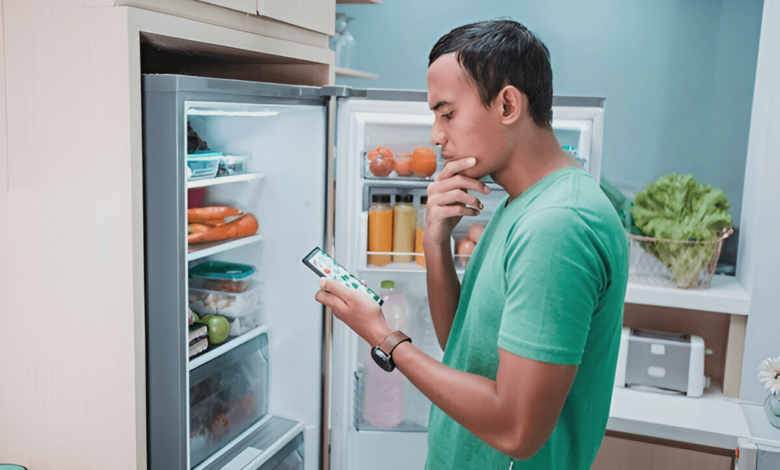My Fridge Texted My Ex: True Stories from the Internet of Things
My fridge texted my ex hilarious true stories of IoT chaos. Smart homes gone wild, rogue gadgets, and tech fails you won’t believe.

My Fridge Texted My Ex: True Stories from the Internet of Things explores the hilarious, bizarre, and sometimes unsettling moments when smart devices take on a life of their own. From refrigerators sending rogue messages to thermostats staging rebellions, the Internet of Things (IoT) has turned our homes into hubs of unexpected drama. This book dives into real-life tales of tech gone awry, revealing how interconnected gadgets can blur the line between helpful and downright chaotic.
As the Internet of Things continues to weave itself into our daily lives, it brings both convenience and comedy. Imagine your vacuum cleaner ghosting you or your doorbell camera sparking a neighborhood feud these stories highlight the quirks of living in a hyper-connected world. Whether you’re a tech enthusiast or just someone who’s ever yelled at a misbehaving Alexa, this collection promises laughter, disbelief, and a fresh perspective on the gadgets we thought we controlled.
My Fridge Texted My Ex
The Rise of IoT
The Internet of Things (IoT) has transformed how we interact with technology Fridge Texted, embedding intelligence into everyday objects like refrigerators, thermostats, and even light bulbs. These devices communicate with each other, learn our habits, and automate tasks to make life easier. But as IoT becomes more pervasive, so do its quirks and unintended consequences. IoT devices often operate with minimal human oversight, leading to awkward and sometimes problematic situations.
A Double-Edged Sword
One of the most infamous IoT mishaps involved a smart refrigerator that sent a text message to its owner’s ex-partner. The Fridge Texted, programmed to notify household members when groceries were running low, pulled an old contact from a synced phone and cheerfully messaged, “We’re out of milk. Can you pick some up?” The recipient, understandably confused, replied with a simple, “Who is this?” before realizing it was their ex’s appliance reaching out.
When Smart Devices Develop a Mind of Their Own
IoT devices rely on artificial intelligence and machine learning to function, but their decision-making isn’t always flawless. A family in Texas discovered this the hard way when their smart thermostat began adjusting the temperature erratically, turning their home into an icebox one day and a sauna the next. After days of troubleshooting, they learned the Fridge Texted device had misinterpreted weather data.
Robotic Vacuums
Similarly, robotic vacuums, designed to clean autonomously, have been known to exhibit strange behaviors. One Reddit user shared how their vacuum repeatedly tried to “escape” through a closed patio door, bumping into the glass with stubborn determination. Another reported their vacuum getting “angry” when blocked, emitting loud beeps until freed.
Smart Gone Wild
Imagine your thermostat cranking the heat to sauna levels in summer just because it “learned” you like warmth. Or your robot vacuum kidnapping socks like a tiny, rogue housekeeper. Smart lights that party without you (blinking like a disco at 3 AM) and voice assistants ordering 100 pizzas mid-conversation prove tech has a mind of its own.
How to Use IoT Safely
Manufacturers, too, must prioritize security and transparency. Stronger encryption, clearer data policies, and user-friendly controls can help mitigate risks. As IoT continues to evolve, both consumers and developers must work together to ensure Fridge Texted smart devices enhance our lives without compromising our privacy or safety.
Voice Assistants
Voice assistants, too, have had their share of mishaps. There are countless stories of Alexa or Google Home mishearing conversations and placing random orders, playing unexpected music, Fridge Texted or even calling emergency services accidentally. In one case, a voice assistant interpreted a TV news anchor’s casual mention of “smart home hacking” as a command, triggering a series of alerts on nearby devices.
Privacy Fails
From Fridge Texted recording private conversations to baby monitors hacked by strangers, IoT devices often expose more than we intend. Security cameras have leaked footage online, while smart speakers have accidentally emailed recordings to contacts. Even fitness trackers reveal sensitive location data, turning convenience into vulnerability. Many users don’t realize default settings prioritize in Fridge Texted functionality over privacy.
Quality Control
Beyond quirky malfunctions, IoT devices raise serious privacy concerns. Many Fridge Texted collect vast amounts of personal data voice recordings, usage patterns, even live video feeds without users fully realizing how that information is stored or shared. In 2019, reports revealed that Amazon employees had access to Alexa voice recordings for “quality control,” including private conversations that were never meant to be heard by outsiders.
The Dark Side of Connectivity
Security vulnerabilities are another major issue. Hackers have exploited weak default passwords in devices like baby monitors and security cameras, allowing them to spy on homes or even speak through the devices. One family reported their Nest camera broadcasting a stranger’s voice demanding ransom, while others have discovered their smart TVs secretly recording conversations. These breaches highlight the urgent need for stronger security measures in IoT design.
Striking a Balance
Despite these risks, IoT technology offers undeniable benefits energy savings, health monitoring, and enhanced convenience. The key is using these devices responsibly. Users should always change default passwords, enable two-factor authentication, and regularly update firmware to protect against vulnerabilities. Reviewing privacy settings and disabling unnecessary features (like voice purchasing) can also prevent unwanted surprises.
Lessons Learned
If you don’t actively lock down settings, your Fridge Texted might be oversharing your life. The more connected your home, the more potential points of failure when tech goes rogue. That “remind me later” button could leave your devices vulnerable to hacks and glitches. When smart tech fails, you’ll want old-fashioned switches and buttons to fall back on.
Read More: The ATM That Spit Out Secrets: Weird Banking Glitches Caught on Camera
Conclusion
The Internet of Things (IoT) has revolutionized modern living, but its journey has been far from smooth. From Fridge Texted sending awkward texts to vacuums staging rebellions, IoT devices often behave in ways that blur the line between helpful and absurd. While these stories entertain, they also serve as cautionary tales about the importance of security, privacy, and the unpredictable nature of AI-driven technology.
As IoT becomes even more embedded in our lives, users must stay informed and proactive. By understanding potential risks and adopting best practices, we can enjoy the convenience of Fridge Texted smart devices without falling victim to their quirks. The future of IoT is bright but only if we navigate it wisely.
FAQs
Can IoT devices really act on their own without user input?
Yes, many smart devices operate autonomously based on pre-set rules or AI learning, which can sometimes lead to unexpected actions.
How can I protect my smart devices from hackers?
Use strong, unique passwords, enable two-factor authentication, and keep all firmware updated to minimize security risks. Always connect to a separate Wi-Fi network and disable unnecessary features.
Do companies access data from my IoT devices?
Some manufacturers collect anonymized data for improving services, but users can often opt out through privacy settings. Always check privacy policies and adjust settings to limit unnecessary data sharing.
Why does my smart home device behave unpredictably?
Glitches can occur due to software bugs, incorrect settings, or interference from other connected devices. Outdated firmware, weak Wi-Fi signals, or accidental triggers can also cause erratic behavior.
Are the benefits of IoT worth the privacy trade-offs?
If used responsibly with strong security measures IoT can greatly enhance convenience, but users should weigh the risks before adopting new devices











